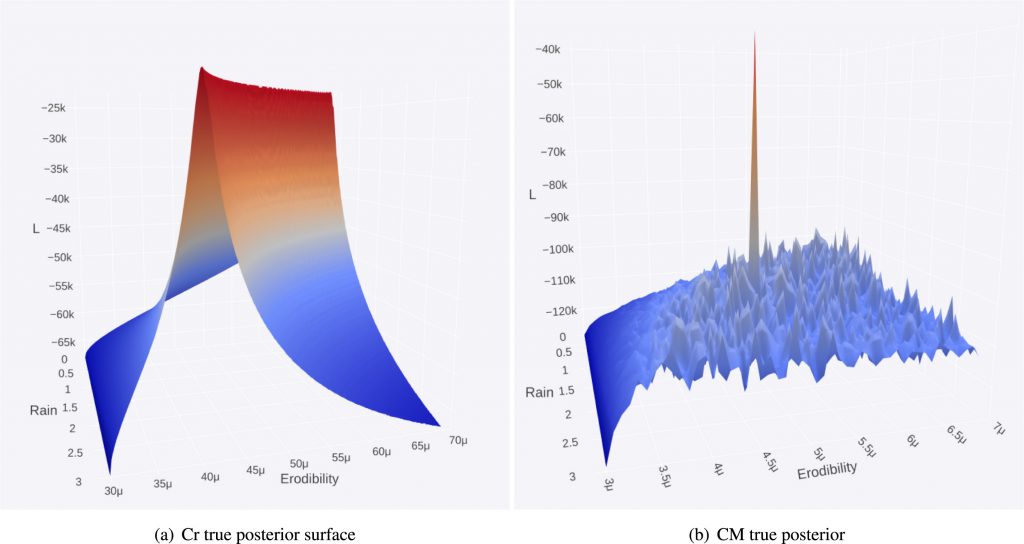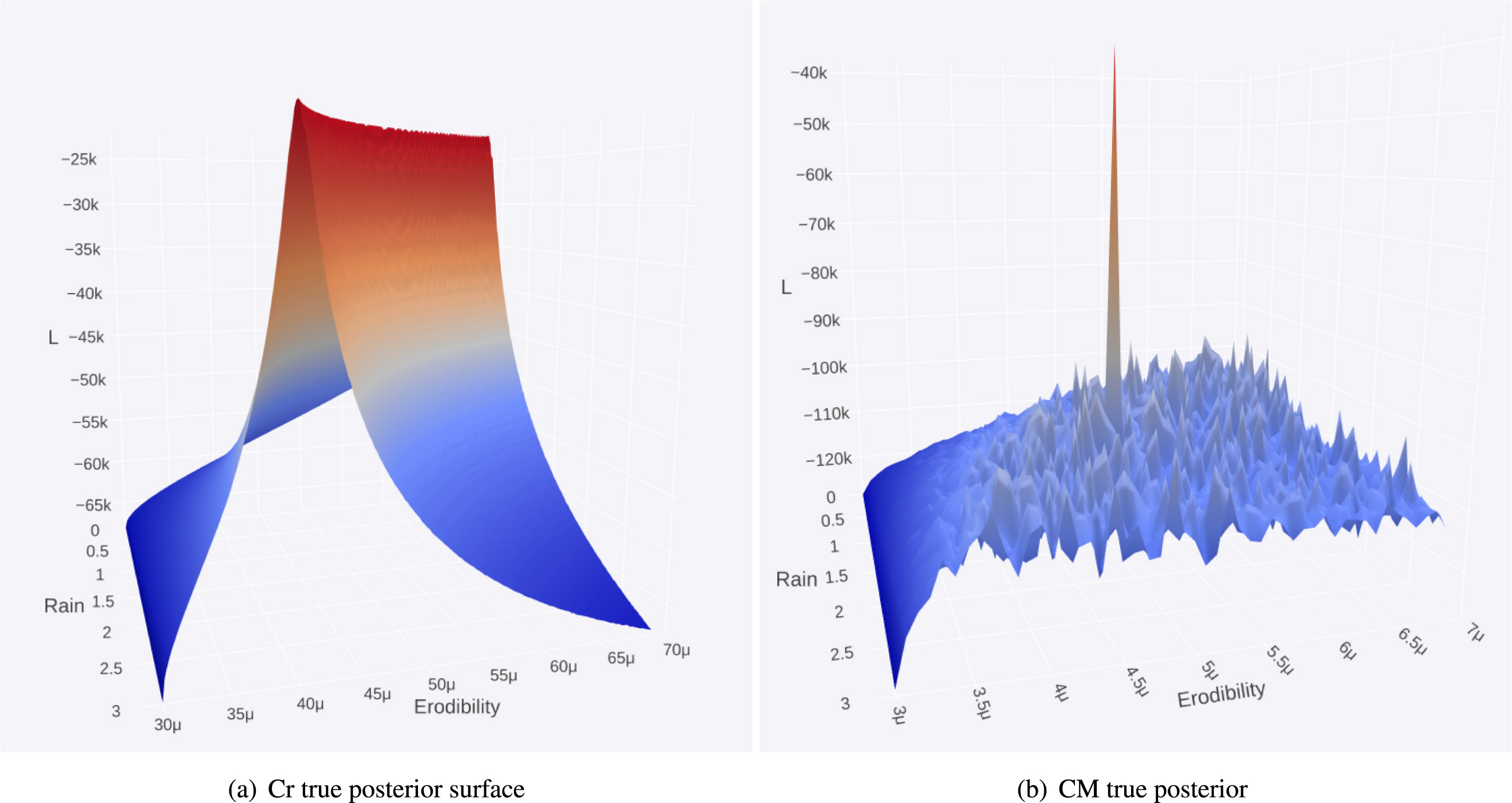
Abstract: Bayesian inference provides a rigorous methodology for estimation and uncertainty quantification of unknown parameters in geophysical forward models. Badlands is a landscape evolution model that simulates topography development at various space and time scales. Badlands consists of a number of geophysical parameters that needs estimation with appropriate uncertainty quantification; given the observed present-day ground truth such as surface topography and the stratigraphy of sediment deposition through time. The inference of the unknown parameters is challenging due to the scarcity of data, sensitivity of the parameter setting, and complexity of the model. In this paper, we take a Bayesian approach to provide inference using Markov chain Monte Carlo sampling (MCMC). We present Bayeslands; a Bayesian framework for Badlands that fuses information obtained from complex forward models with observational data and prior knowledge. As a proof-of-concept, we consider a synthetic and real-world topography with two parameters for Bayeslands; namely, precipitation and erodibility. We demonstrate the challenge in sampling irregular and multi-modal posterior distributions using a likelihood surface that has a range of sub-optimal modes. The results of the experiments show that Bayeslands yields a promising distribution of the selected Badlands parameters.
Citation: Chandra, R., Azam, D., Müller, R.D., Salles, T. and Cripps, S., 2019. BayesLands: A Bayesian inference approach for parameter uncertainty quantification in Badlands. Computers & Geosciences.
To read the full text please click here.
![]()

